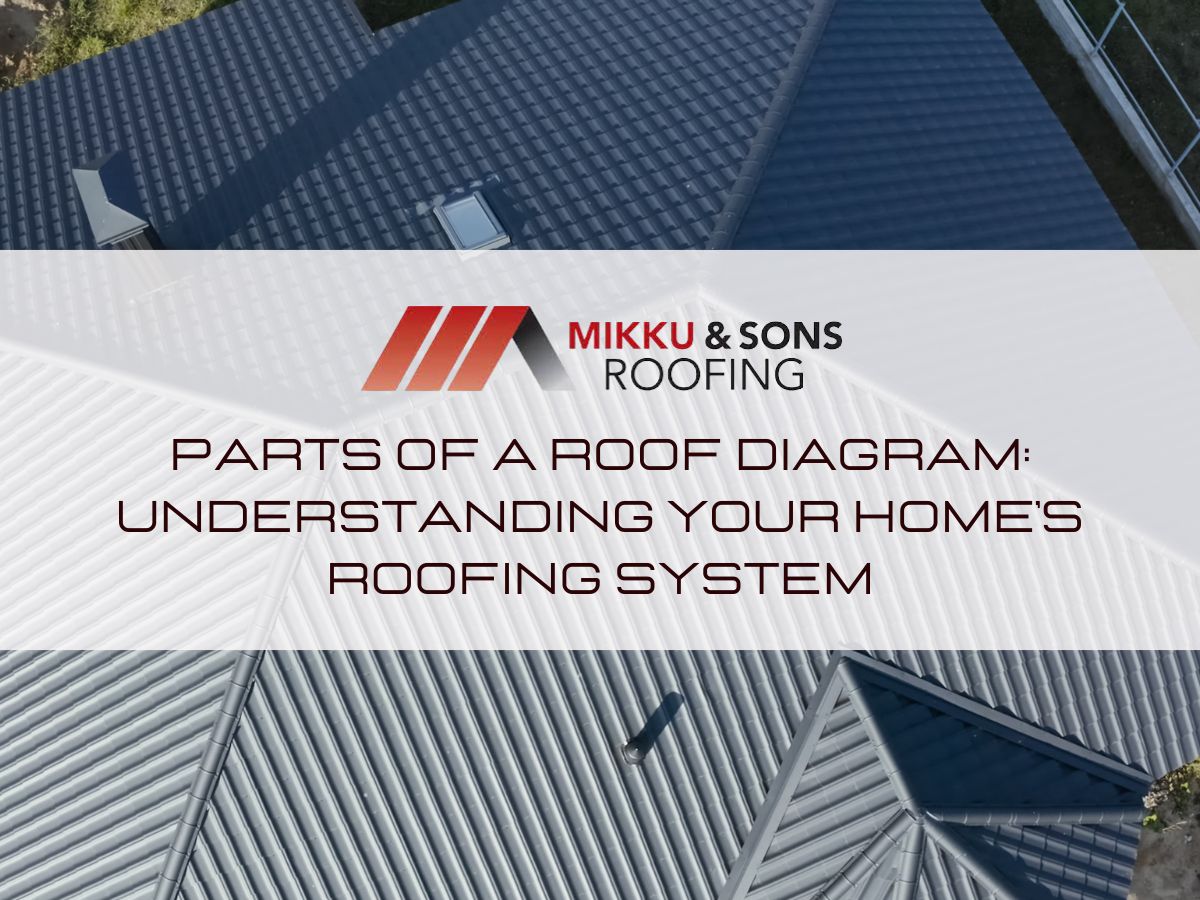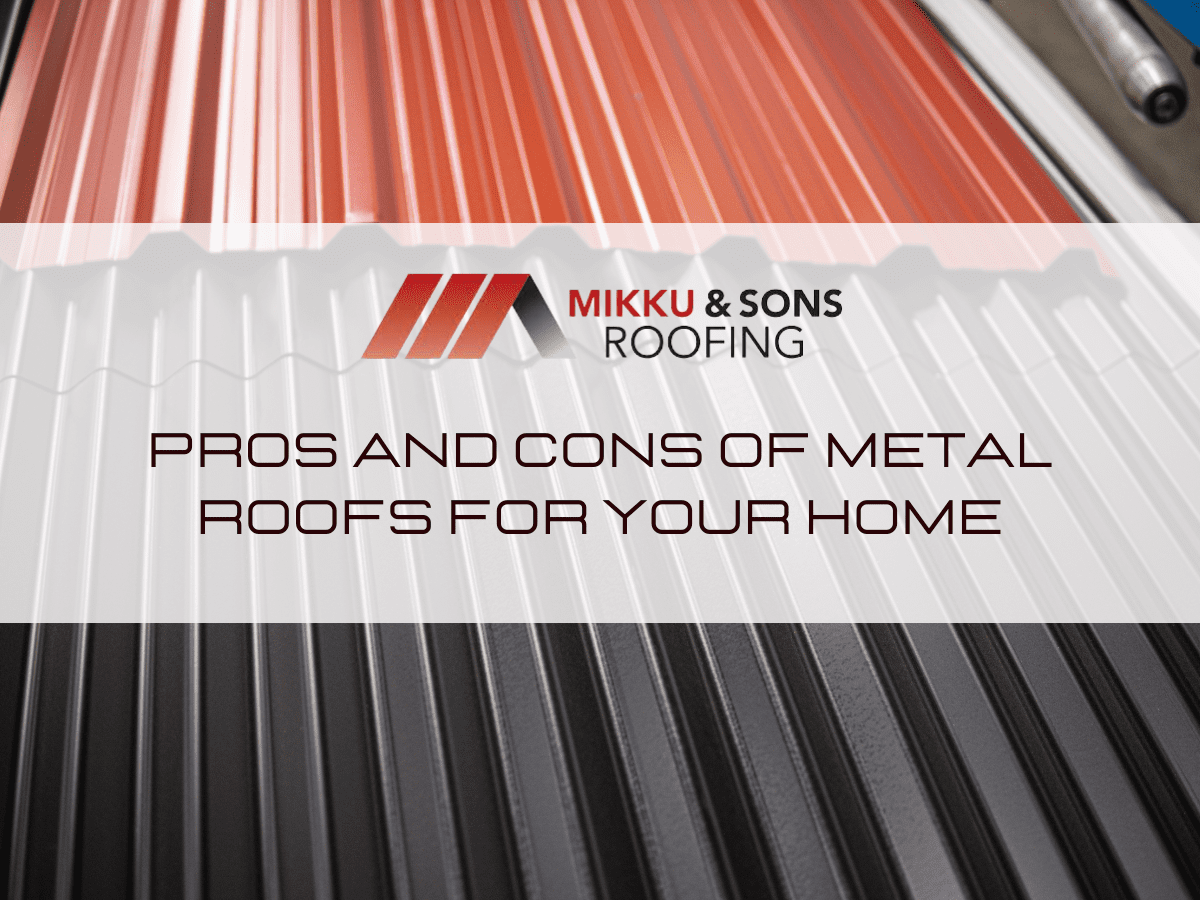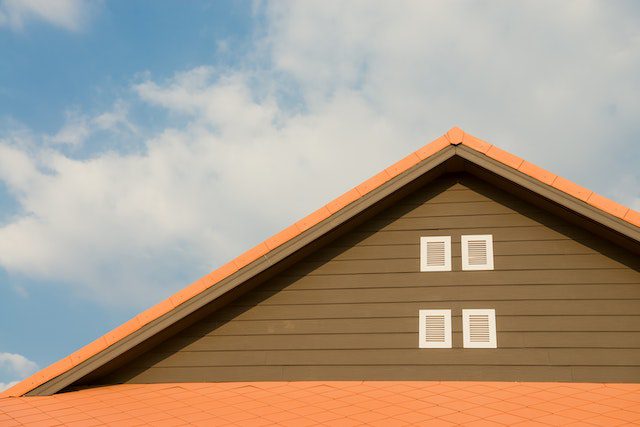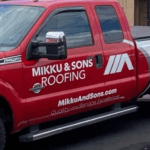

Roofing is a critical component of any home, as it provides protection from the elements and contributes to the overall aesthetic appeal. While there are various roofing materials to choose from, metal roofing has become increasingly popular among homeowners due to its numerous advantages.
However, like any material, metal roofing comes with its own set of drawbacks. This article will explore the pros and cons of metal roofs for your home.

Metal roofs have become an increasingly popular choice as they offer numerous benefits. In fact, metal roofs have emerged as an attractive alternative to traditional roofing materials.
Here are some advantages of metal roofs, providing homeowners with the information they need to make an informed decision.
One of the most significant benefits of metal roofing is its exceptional durability. Metal roofs are resistant to cracking, shrinking, and eroding, making them an excellent choice for long-term use. They can withstand harsh weather conditions, including heavy rain, hail, snow, and high winds.
With proper maintenance, a metal roof can last for 40 to 70 years or more, far outlasting traditional asphalt shingle roofs, which typically last for 20 to 30 years.
Metal roofs are highly energy-efficient due to their reflective properties. They reflect solar radiant heat, reducing the amount of heat absorbed by your home. This can decrease cooling costs during hot summer months by up to 25%, saving you money on your energy bills.
Metal roofs also provide better insulation during colder months, helping to maintain a comfortable indoor temperature and reducing heating costs.
Metal roofs are eco-friendly, made from recyclable materials, and can be recycled at the end of their life cycle. This helps reduce the environmental impact of roofing waste in landfills. Additionally, the energy efficiency of metal roofs can contribute to a smaller carbon footprint for your home.
Compared to other roofing materials, metal roofs require minimal maintenance. They are resistant to mold, mildew, and pests, reducing the need for frequent repairs or replacements. Occasional inspections and cleaning are generally all needed to maintain a metal roof's longevity and performance. This low maintenance aspect can save homeowners both time and money in the long run.
Metal roofs come in a wide range of colors, styles, and finishes, allowing homeowners to select a design that complements their home's architecture and personal taste. Modern metal roofing materials can mimic the appearance of other materials, such as wood shakes, clay tiles, or slate, providing a sleek and sophisticated look. Metal roofing can enhance the overall aesthetic of a home, potentially increasing its resale value.
Metal roofs are non-combustible, making them an excellent choice for fire-prone areas. They have a Class A fire rating, the highest rating available for roofing materials, which can provide homeowners with peace of mind and potentially lower insurance premiums.
Metal roofing materials are relatively lightweight compared to other options like tile or slate. This reduced weight puts less stress on your home's structure, making metal roofs an ideal choice for both new construction and re-roofing projects.
While metal roofs have gained popularity due to their numerous benefits, it's essential to be aware of the potential drawbacks associated with this type of roofing material. With that, here are some disadvantages of metal roofs, providing homeowners with a comprehensive understanding of the potential challenges they may face when choosing this roofing option.
One of the primary drawbacks of metal roofing is the higher upfront cost compared to other materials like asphalt shingles. The investment can be substantial, but it's important to consider the long-term benefits, such as durability, energy efficiency, and low maintenance.
In many cases, the overall cost of ownership may be lower over time, but homeowners must be prepared for the initial expense.
"Our real estate company buys houses in Mishawaka, IN and metal roofs are popluar style there. We have noticed a lot of real estate compnanies that fix and flip properties will install shingle over metal roofs in most cases because of the economics. However, if its your home and you want it to stand out then metal roofs are great in boosting your curb appeal!"
Matt Vukovich | Real Estate Investor in Mishawaka, IN

During heavy rain or hailstorms, metal roofs can be noisier than other roofing materials. The sound of raindrops or hail hitting the metal surface may be distracting or disruptive for some homeowners. However, this issue can be mitigated by installing proper insulation or noise-reducing underlayment during installation.
Metal roofing installation requires skilled professionals with experience in handling the material. Choosing a reputable and experienced contractor for the installation is essential to avoid any potential issues down the line. Improper installation can lead to leaks, poor performance, and reduced lifespan.
Additionally, finding a qualified installer in your area may be more challenging compared to finding an installer for more common roofing materials.
Metal roofs can expand and contract as the temperature changes, which may cause some panels to become loose or warp over time. However, modern metal roofing systems are designed to accommodate these changes, and proper installation can minimize potential issues.
Nevertheless, the expansion and contraction in extreme temperature fluctuations may lead to more significant problems that require repairs or roof replacement.
In the event of damage to a metal roof, repairs can be more complicated and costly than with other materials. In some cases, it may be necessary to replace entire panels rather than repairing small sections. This can make repairs more expensive and time-consuming.
Additionally, finding a contractor skilled in metal roof repair may be more challenging, as it requires specialized knowledge and expertise.
While metal roofs are highly durable, they are not entirely immune to damage. Metal roofs can become dented in extreme cases, such as severe hailstorms or falling debris.
Some types of metal roofing, like aluminum and copper, are more prone to denting than others, like steel. While dents do not necessarily compromise the roof's performance, they can be unsightly and may require professional repair to restore the roof's appearance.
While metal roofs are available in various styles and colors, they may not fit every home's aesthetic best. Some architectural styles, like traditional or historic homes, may not be compatible with the modern look of a metal roof. In these cases, alternative roofing materials may be more appropriate to maintain the home's overall aesthetic.
Metal roofs are an increasingly popular choice for homeowners seeking a durable, energy-efficient, and environmentally friendly roofing option. While the initial cost may be higher than other roofing materials, the long-term savings in maintenance and energy costs can make it a wise investment.
However, it is essential to consider the potential drawbacks, such as noise, installation challenges, and limited repair options. By carefully weighing the pros and cons of metal roofs, homeowners can decide on the best roofing material for their unique needs and preferences. Ultimately, a well-installed and maintained metal roof can provide lasting protection and curb appeal for your home.
